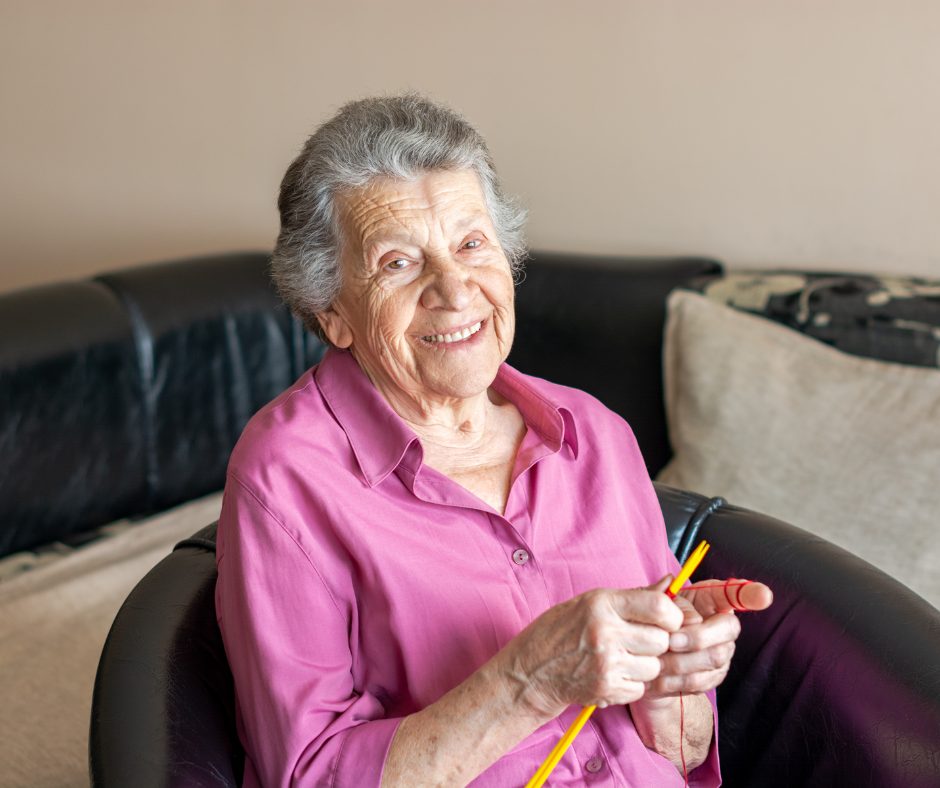If you were a child who couldn’t wait to get into the crayons or playdough, there’s a good chance that you have grown into an adult who doesn’t mind a bit of playful doodling now and then. Perhaps dress-up and drama were more your thing. Or were you a natural performer – singing and dancing up a storm? While creativity and creative expression are natural and expected forms of play and learning in childhood, as we age those playful experiences that connect us to our inner joy can be forgotten as other weightier matters occupy our time. As it turns out, expression through the arts, or Art Therapy, can have enormous benefits not just for the young, but for people of all ages, including those in their later senior years.
What is Art Therapy?
Art Therapy is based on the idea that creative expression through the arts – visual art, drama, dance and music – is intrinsic to all cultures and people and has great potential to enhance mental and physical wellbeing. Rather than being restricted to people who are proficient at an artistic skill, Art Therapy is open to anyone, regardless of skill level or ability and is focused on helping the person to explore ways of expressing themselves or managing emotions without the need for words. Art Therapy is also designed to be a non-judgemental experience, leaving out critiques on technique and opening up space for people to try new ways of expressing themselves.
This is great news for anyone who, as achild was discouraged from drawing anything more advanced than a stick figure or failed the audition for their school’s choir! Moreover, research has demonstrated that for older adults and particularly those experiencing cognitive decline or dementia symptoms, Art Therapy can do much to enhance quality of life.
What are the benefits of Art Therapy?
Multiple studies have demonstrated the ways in which Art Therapy can assist those living with cognitive decline. Importantly, creative expression is not linked to memory, meaning that older adults who struggle with remembering things can still participate fully in Art Therapy activities and experience the full benefits of enjoyment, relaxation and self-expression. Similarly, activities such as drawing, painting, needlework, woodwork, or dancing don’t require language, and are therefore accessible to older adults who have lost some capacity for expressing themselves using words.
In terms of physical benefits, research has shown that the sensory aspect of Art Therapy can greatly reduce feelings of frustration, anxiety, and stress related to a loss of cognitive function. Using one’s hands to make something, or one’s whole body to dance to music stimulates the senses and allows for the release of negative emotions. This can help to reduce stress and has associated benefits in terms of related health conditions such as high blood pressure.
A recent Australian study that followed a group of older adults with dementia who regularly participated in workshops at an art gallery, found that regular participation in this type of Art Therapy resulted in a more even distribution of cortisol levels throughout the day, a reduction in depressive symptoms, and improvements in both working memory and verbal language use. While part of this was attributed to the relaxing effects of viewing the art, the social nature of the experience also played a large part in fostering a sense of inclusion and enjoyment in the participants.
How can I get involved in Art Therapy?
Finding an art therapy program can be as easy as searching online for opportunities near you. Community centres also have a varied calendar of activities which often include art therapy and other creative pastimes.
Given the great physical, emotional and social benefits that participation in art therapy activities can bring for older adults and people living with dementia, it is important to us to know that our residents at TriCare can experience these benefits. Our communities recognise the benefits of Art Therapy and ensure that our residents have access to, and are supported to participate in, activities that promote self-expression, relaxation, and enjoyment. Art and Music Therapy, and even an intergenerational music program with children are just some of the options that are available to residents of our Aged Care communities, so why not enquire today about how we can help your loved one live life to the fullest? Contact us here or book a tour of one of our residences.



